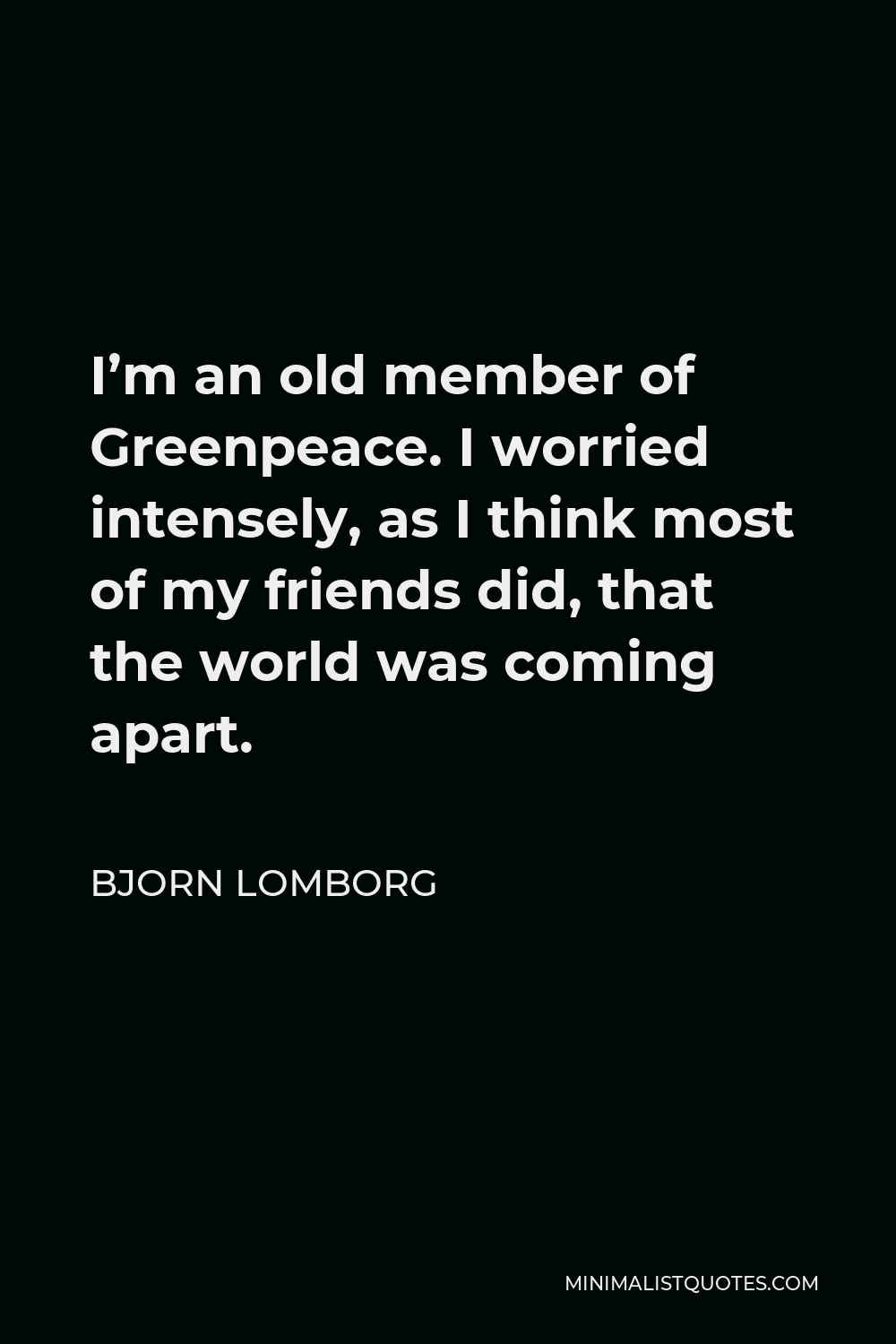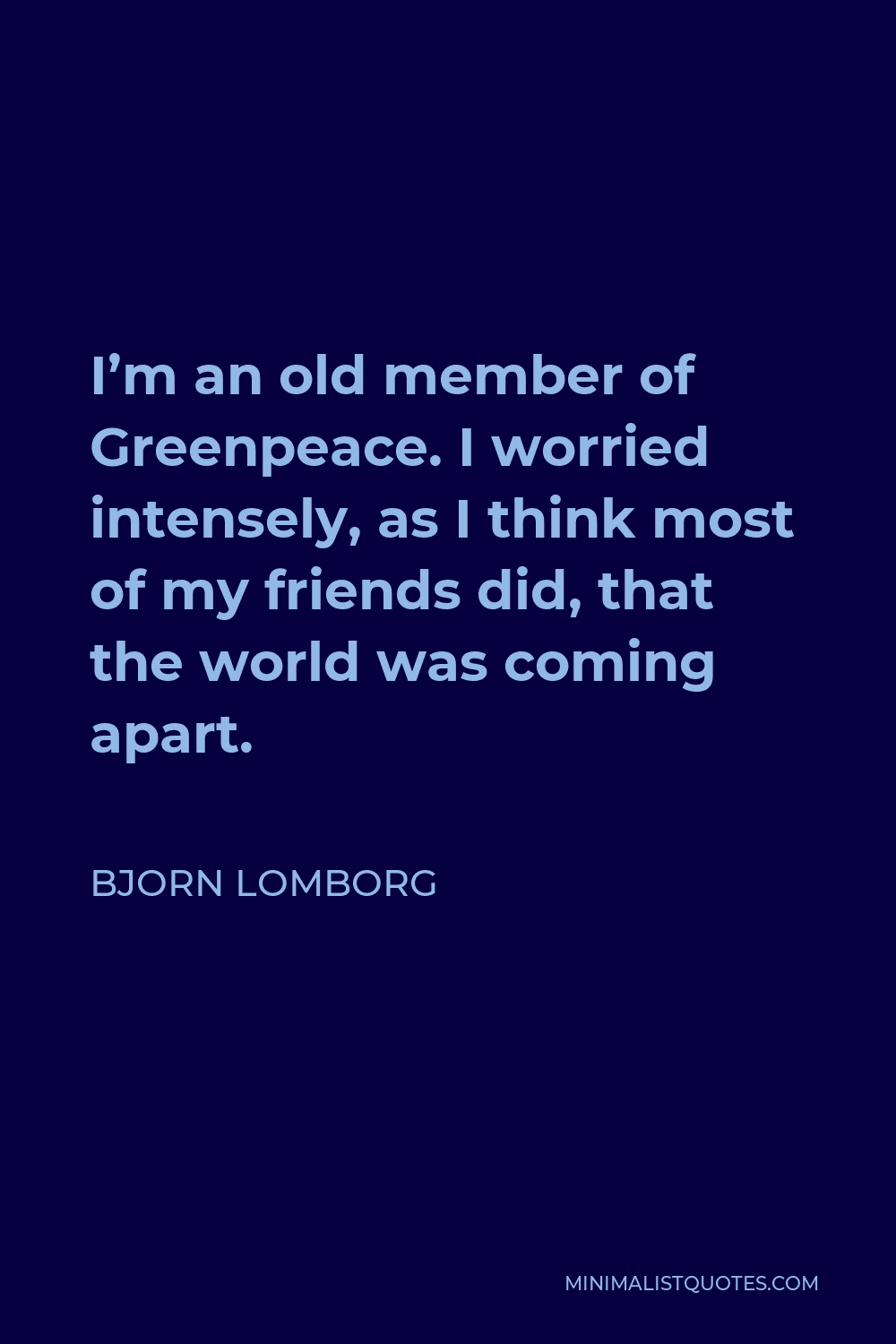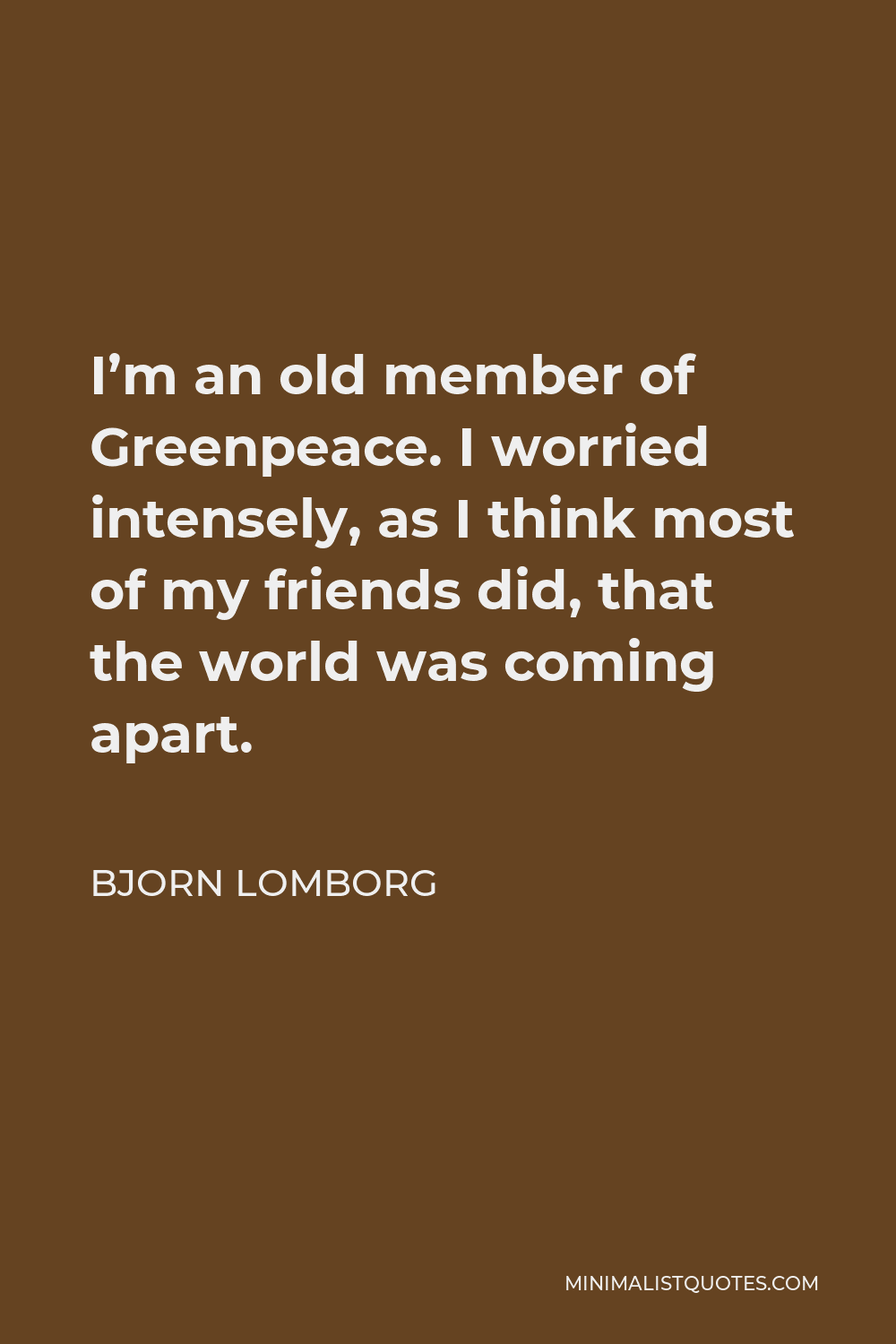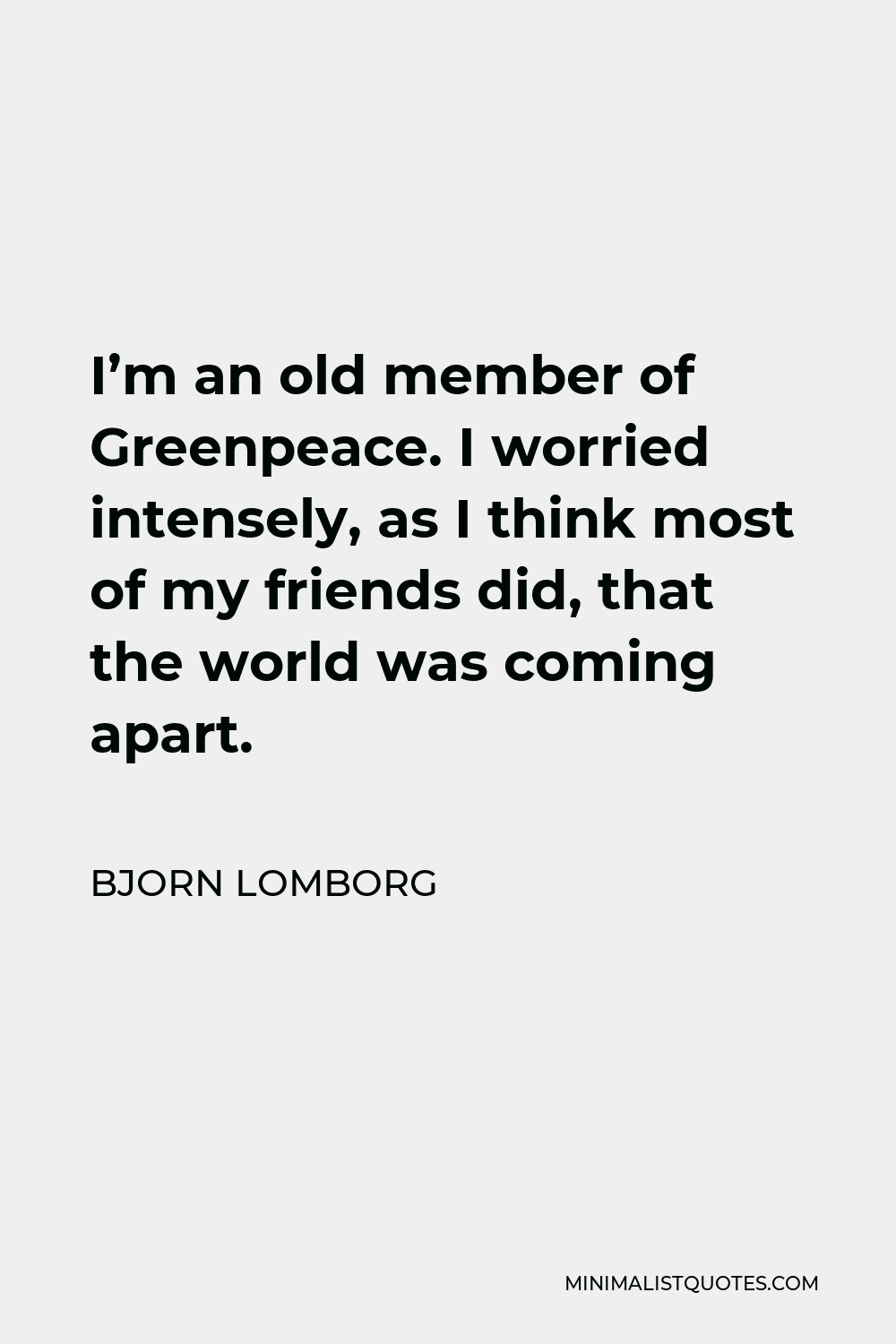The Kyoto treaty has an estimated cost of between US$150 and $350 billion a year, starting in 2010.
BJORN LOMBORGI’m an old member of Greenpeace. I worried intensely, as I think most of my friends did, that the world was coming apart.
More Bjorn Lomborg Quotes
-





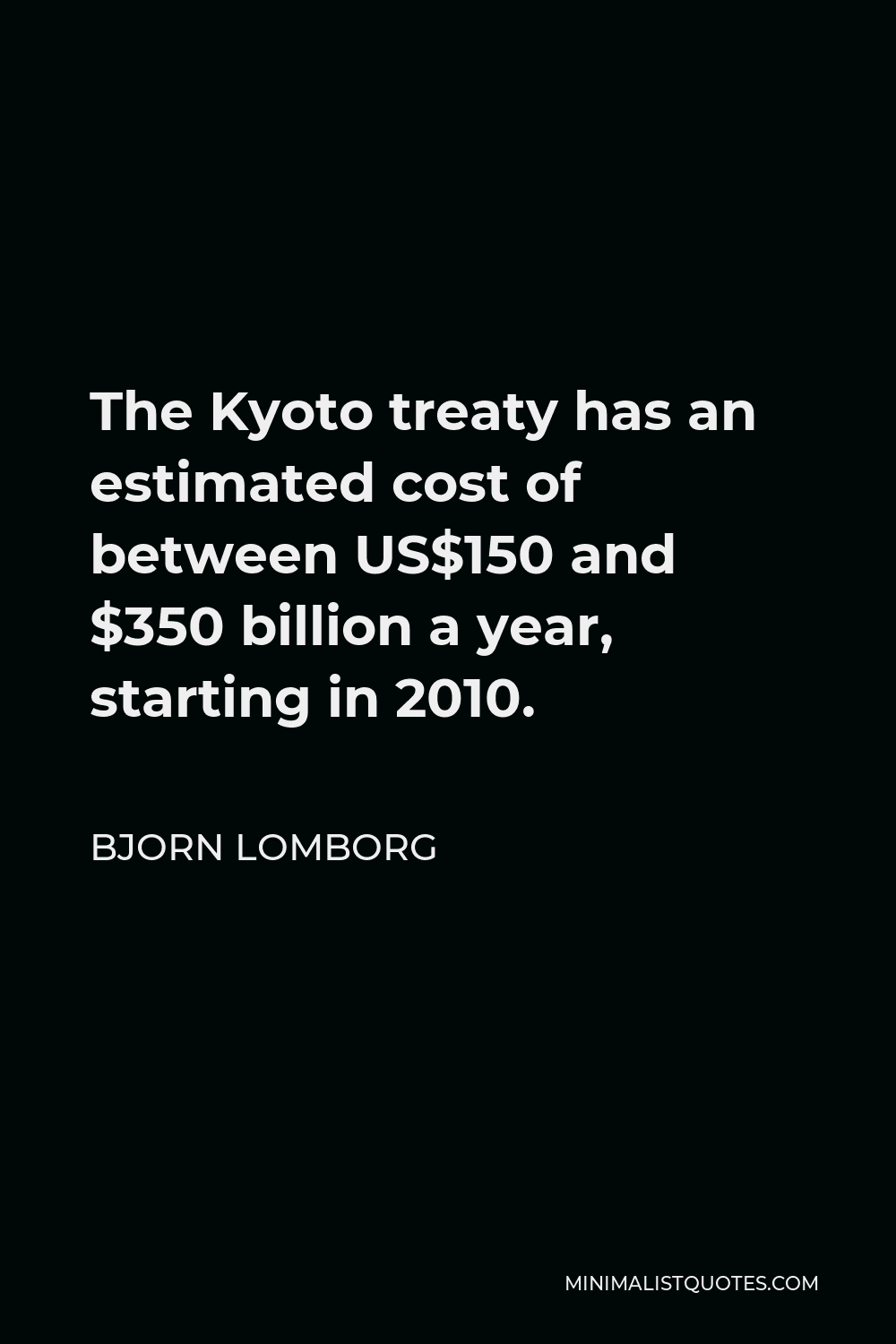
-





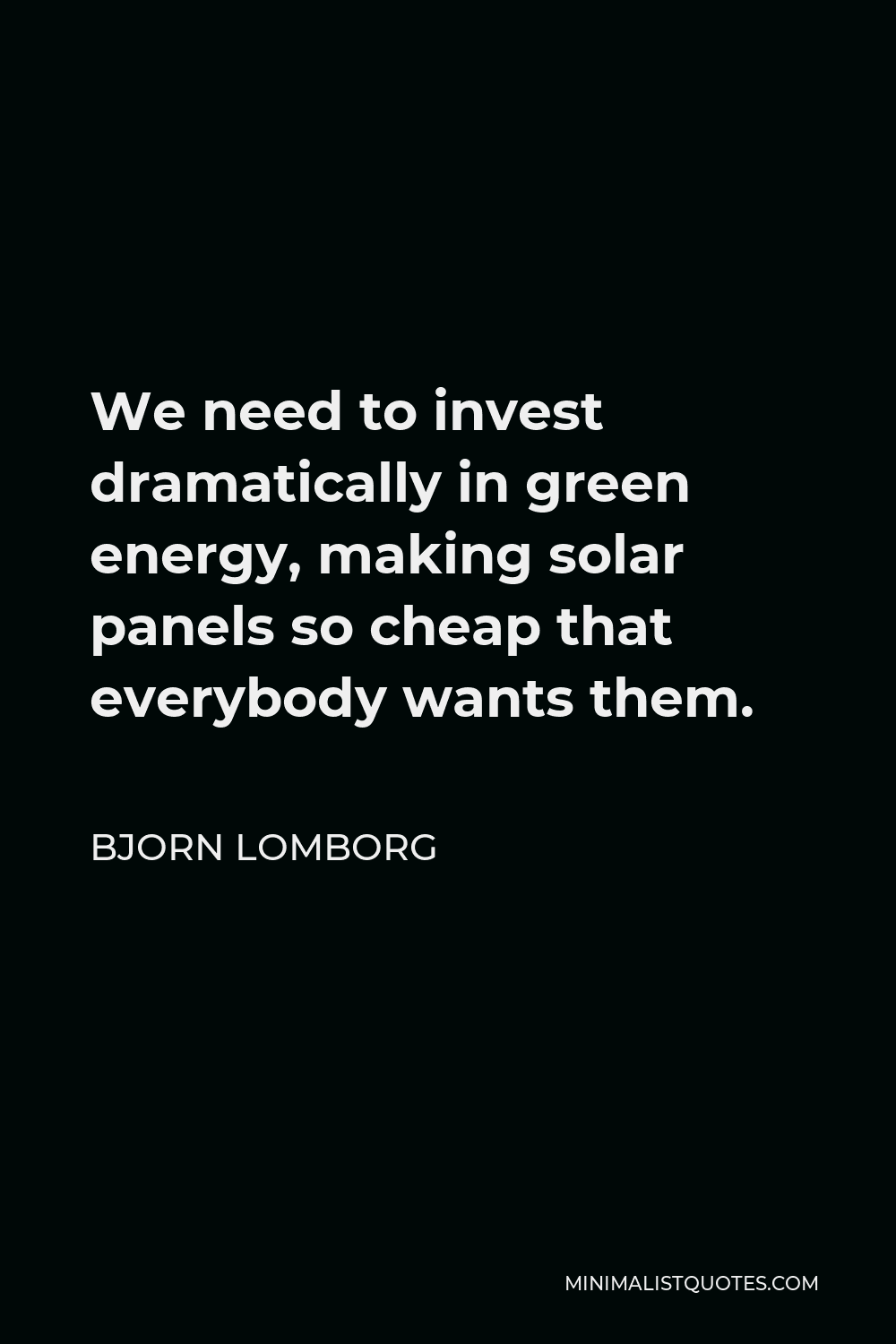
We need to invest dramatically in green energy, making solar panels so cheap that everybody wants them.
BJORN LOMBORG -





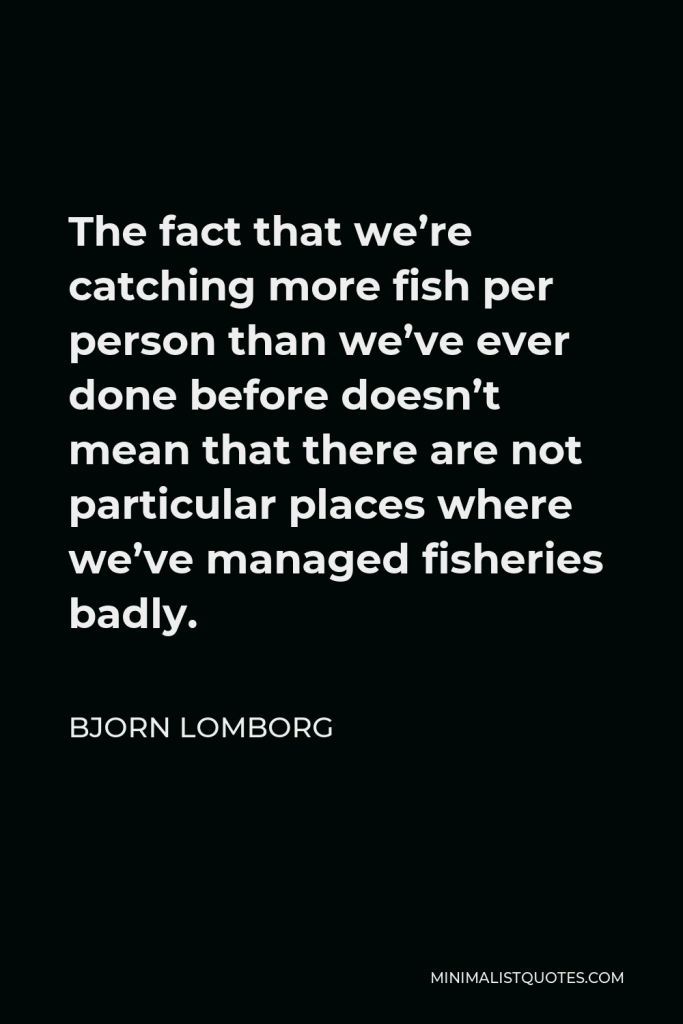

The fact that we’re catching more fish per person than we’ve ever done before doesn’t mean that there are not particular places where we’ve managed fisheries badly.
BJORN LOMBORG -





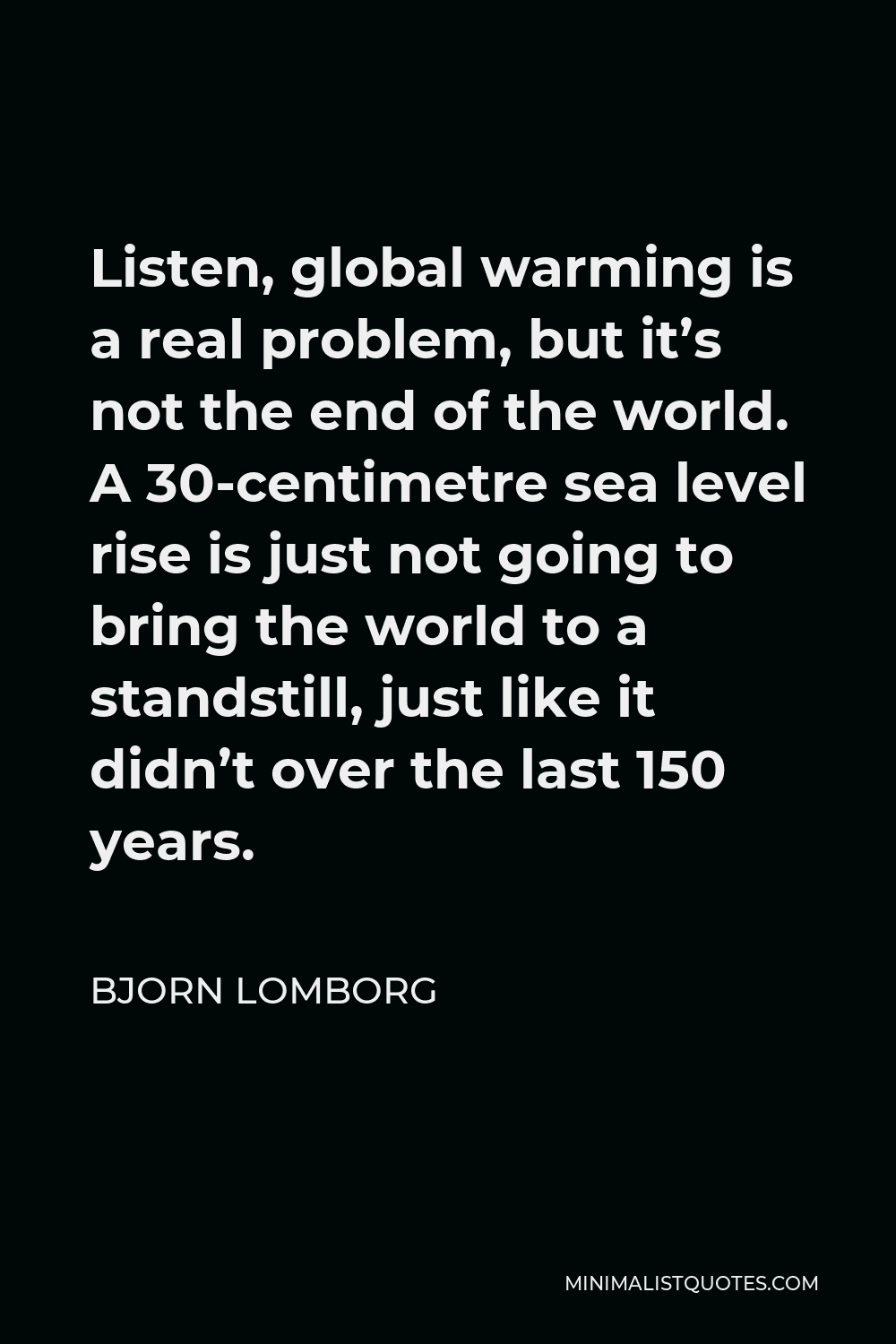
Listen, global warming is a real problem, but it’s not the end of the world. A 30-centimetre sea level rise is just not going to bring the world to a standstill, just like it didn’t over the last 150 years.
BJORN LOMBORG -





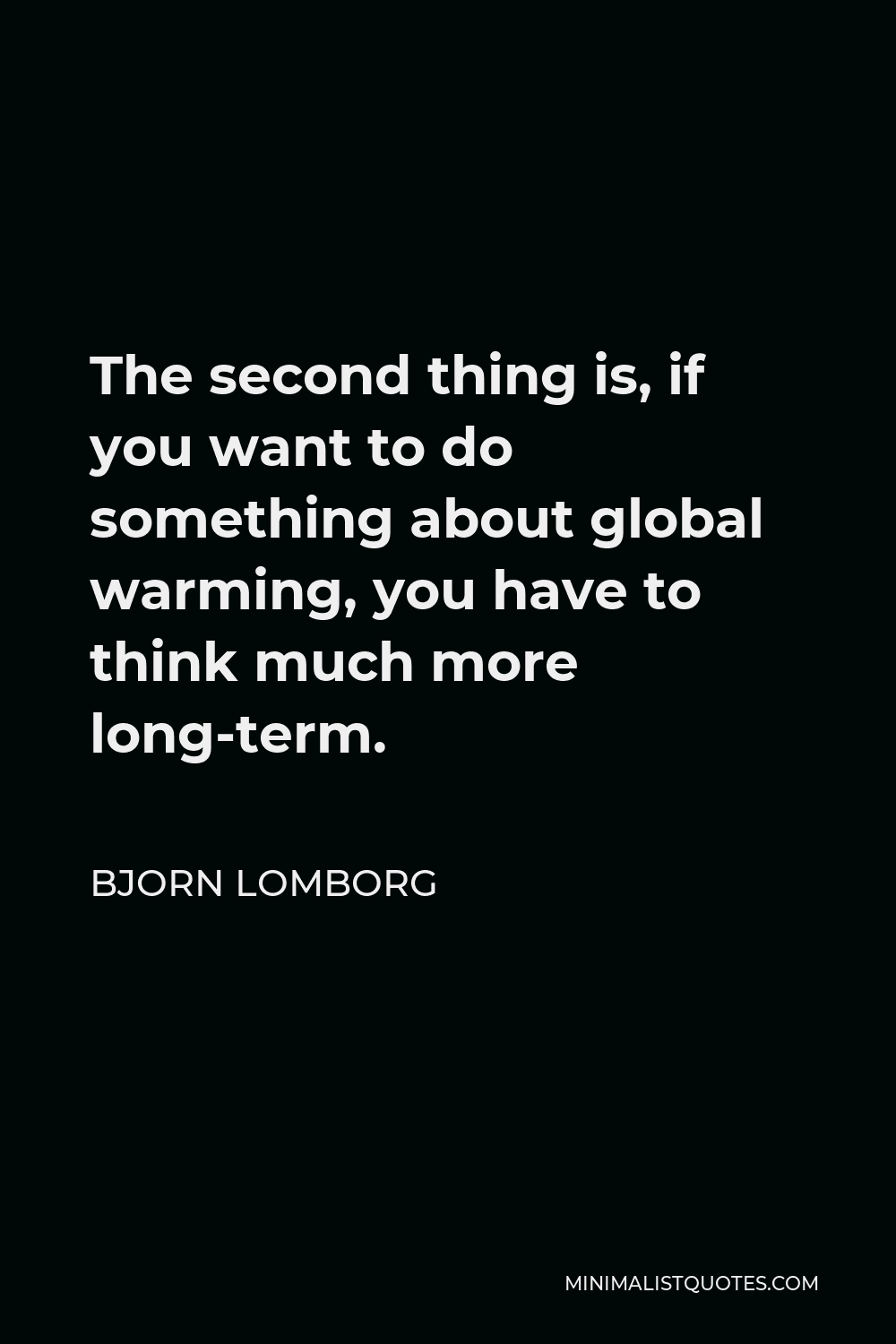
The second thing is, if you want to do something about global warming, you have to think much more long-term.
BJORN LOMBORG -





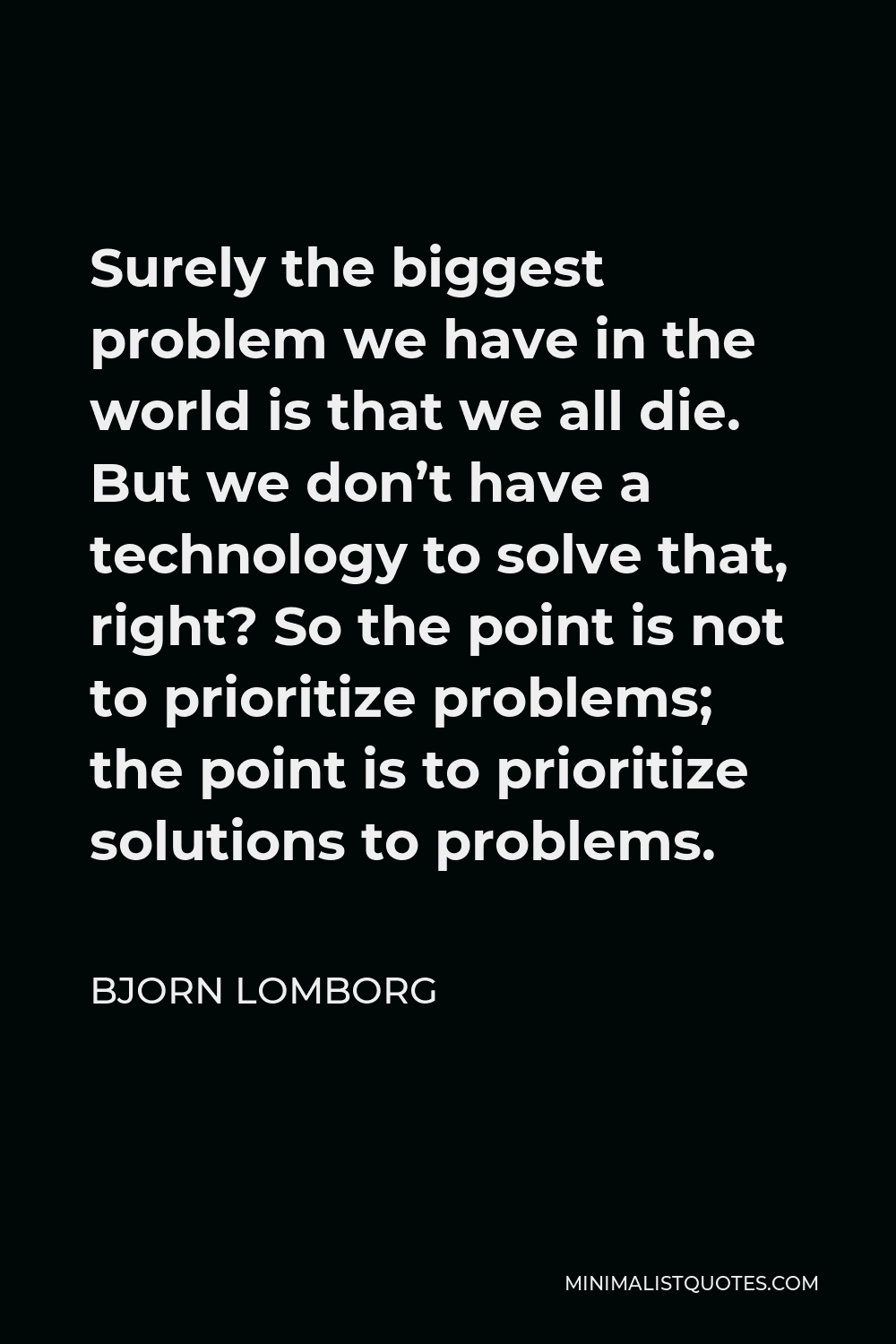
Surely the biggest problem we have in the world is that we all die. But we don’t have a technology to solve that, right? So the point is not to prioritize problems; the point is to prioritize solutions to problems.
BJORN LOMBORG -





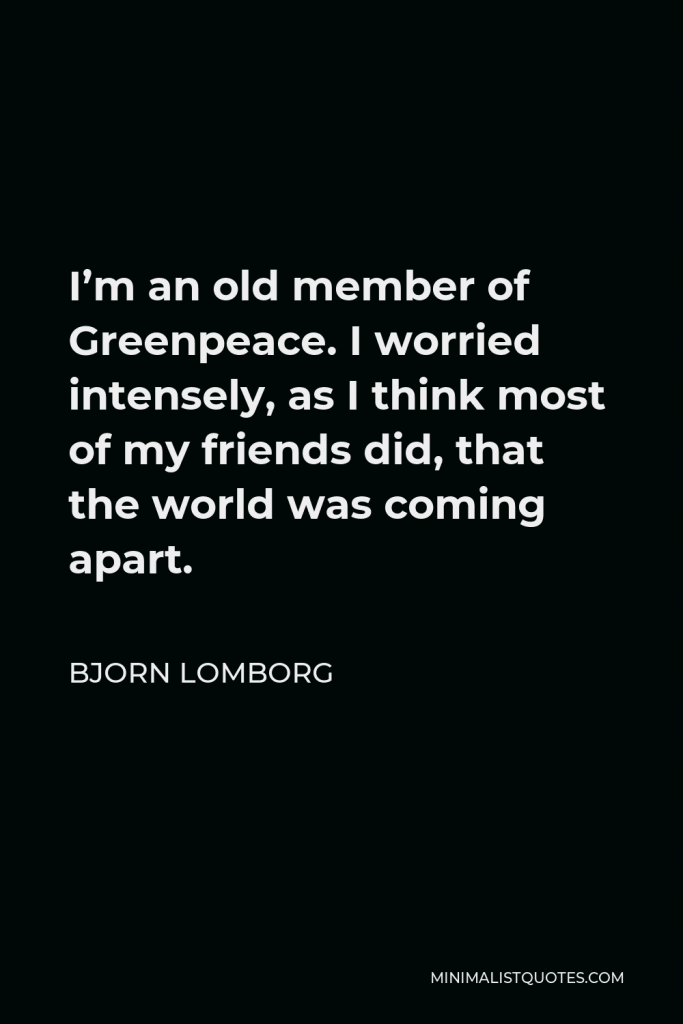

I’m an old member of Greenpeace. I worried intensely, as I think most of my friends did, that the world was coming apart.
BJORN LOMBORG -





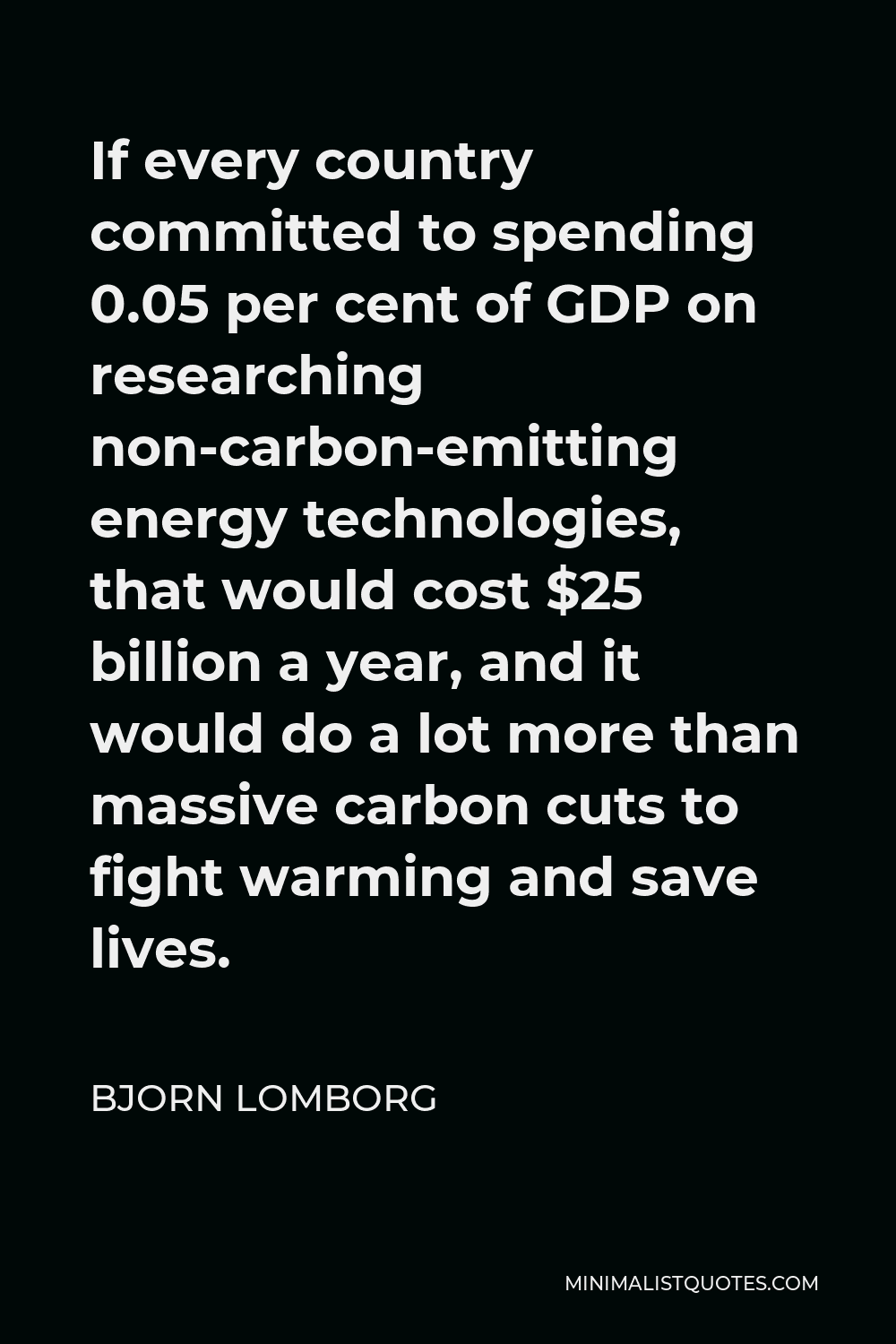
If every country committed to spending 0.05 per cent of GDP on researching non-carbon-emitting energy technologies, that would cost $25 billion a year, and it would do a lot more than massive carbon cuts to fight warming and save lives.
BJORN LOMBORG -





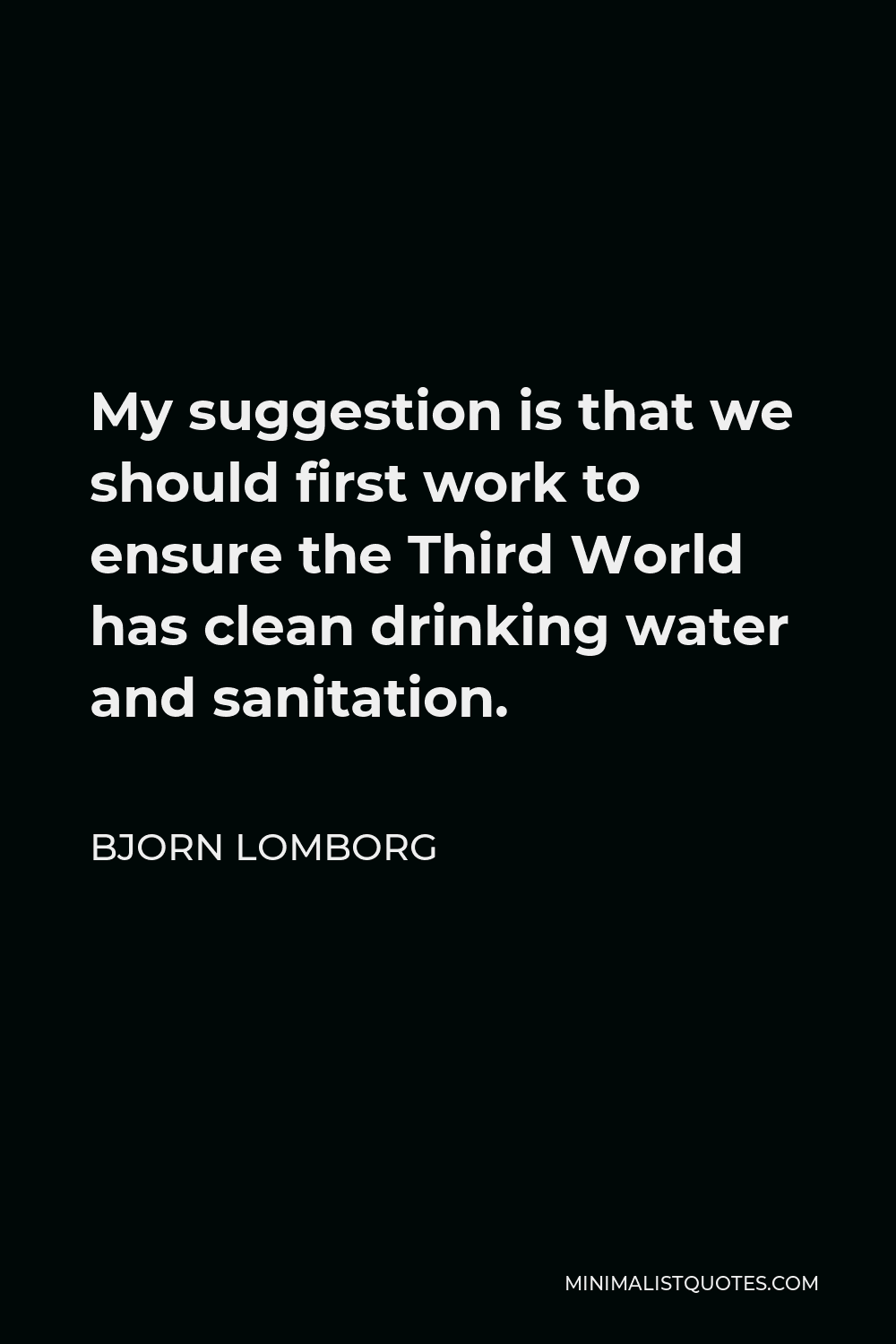
My suggestion is that we should first work to ensure the Third World has clean drinking water and sanitation.
BJORN LOMBORG -





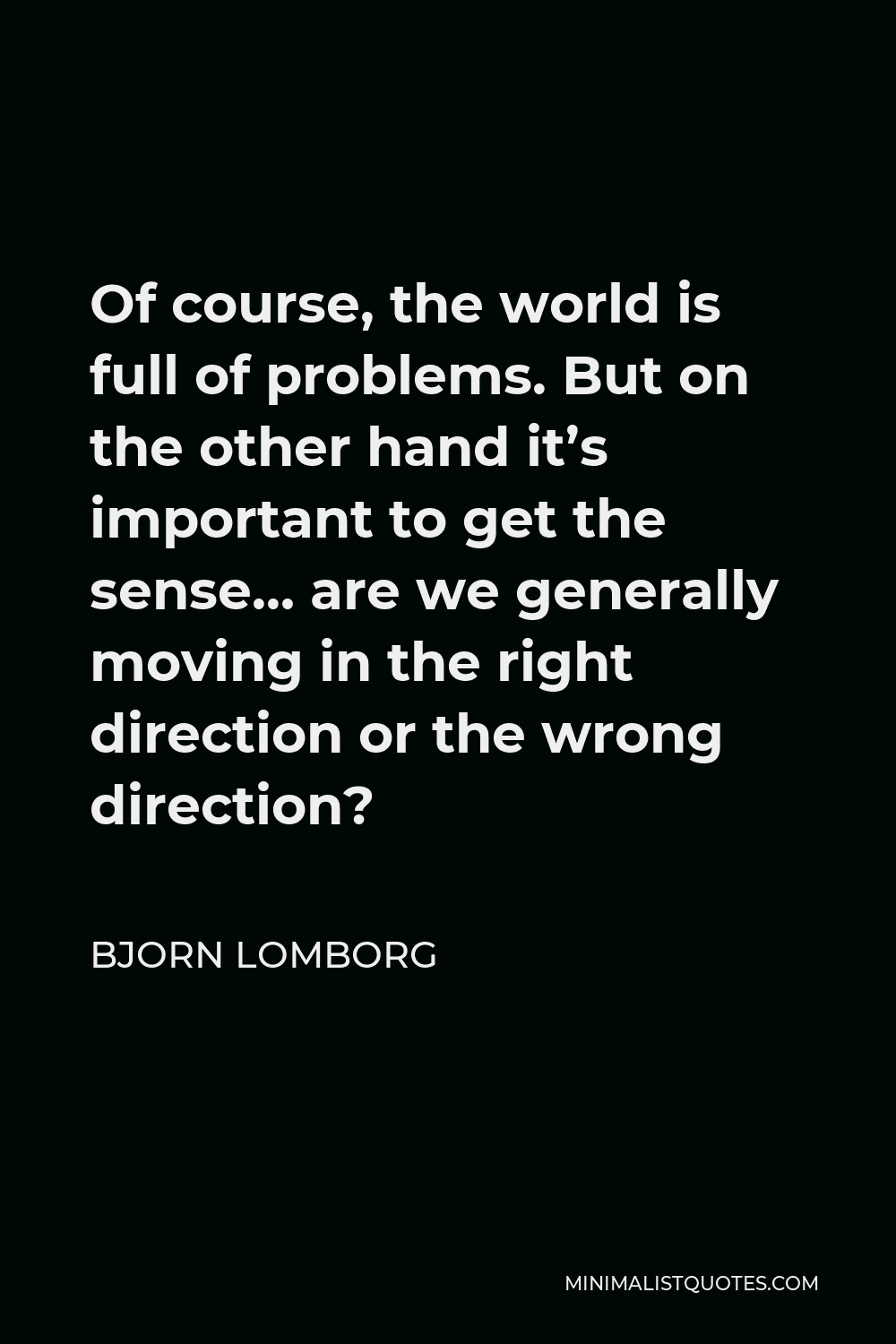
Of course, the world is full of problems. But on the other hand it’s important to get the sense… are we generally moving in the right direction or the wrong direction?
BJORN LOMBORG -






I found university a little dispiriting. I thought I would enter the great halls of Plato, but instead I entered the halls of an intellectual sausage factory. I wanted to do something not on the main course, and chose the environment.
BJORN LOMBORG -





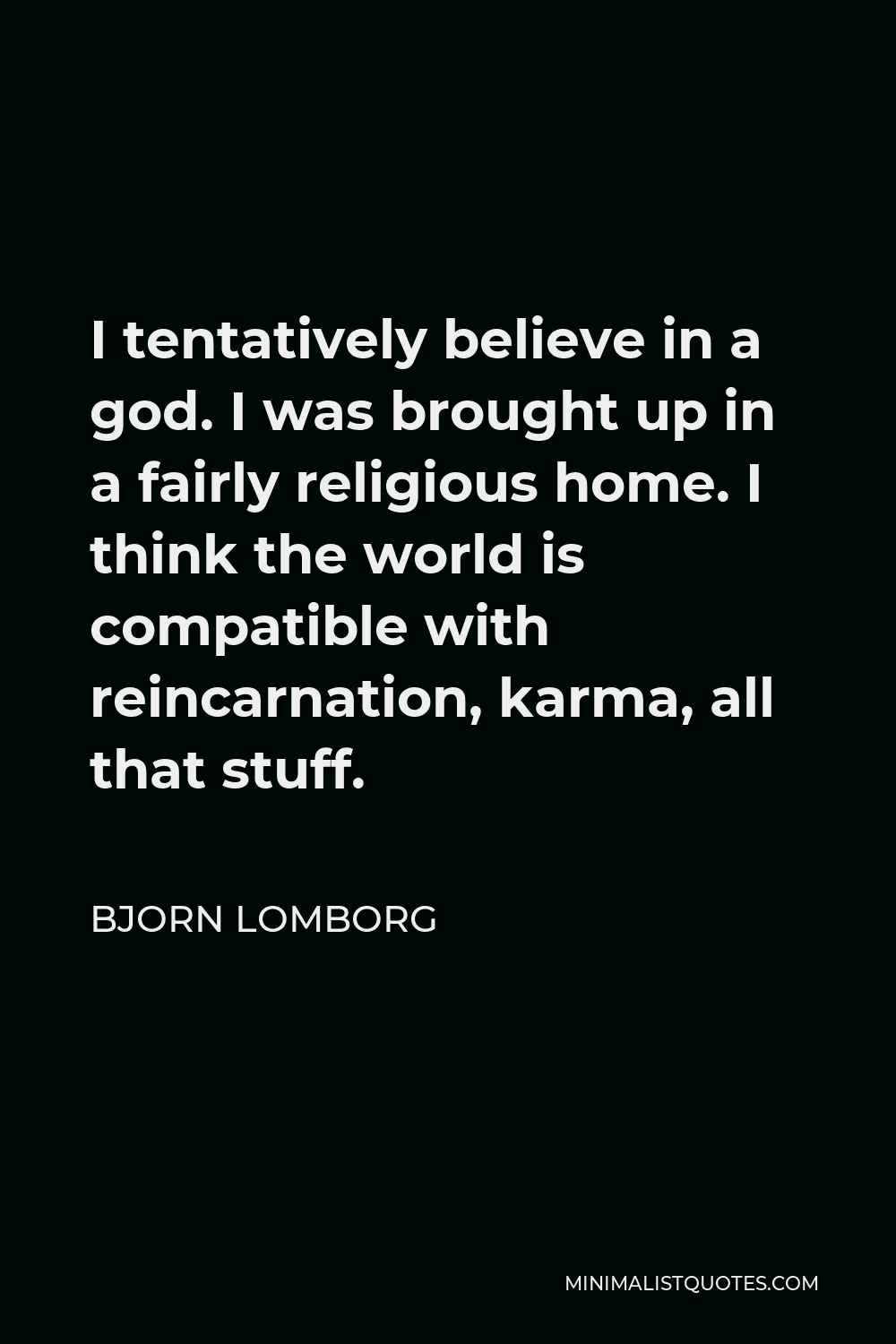
I tentatively believe in a god. I was brought up in a fairly religious home. I think the world is compatible with reincarnation, karma, all that stuff.
BJORN LOMBORG -





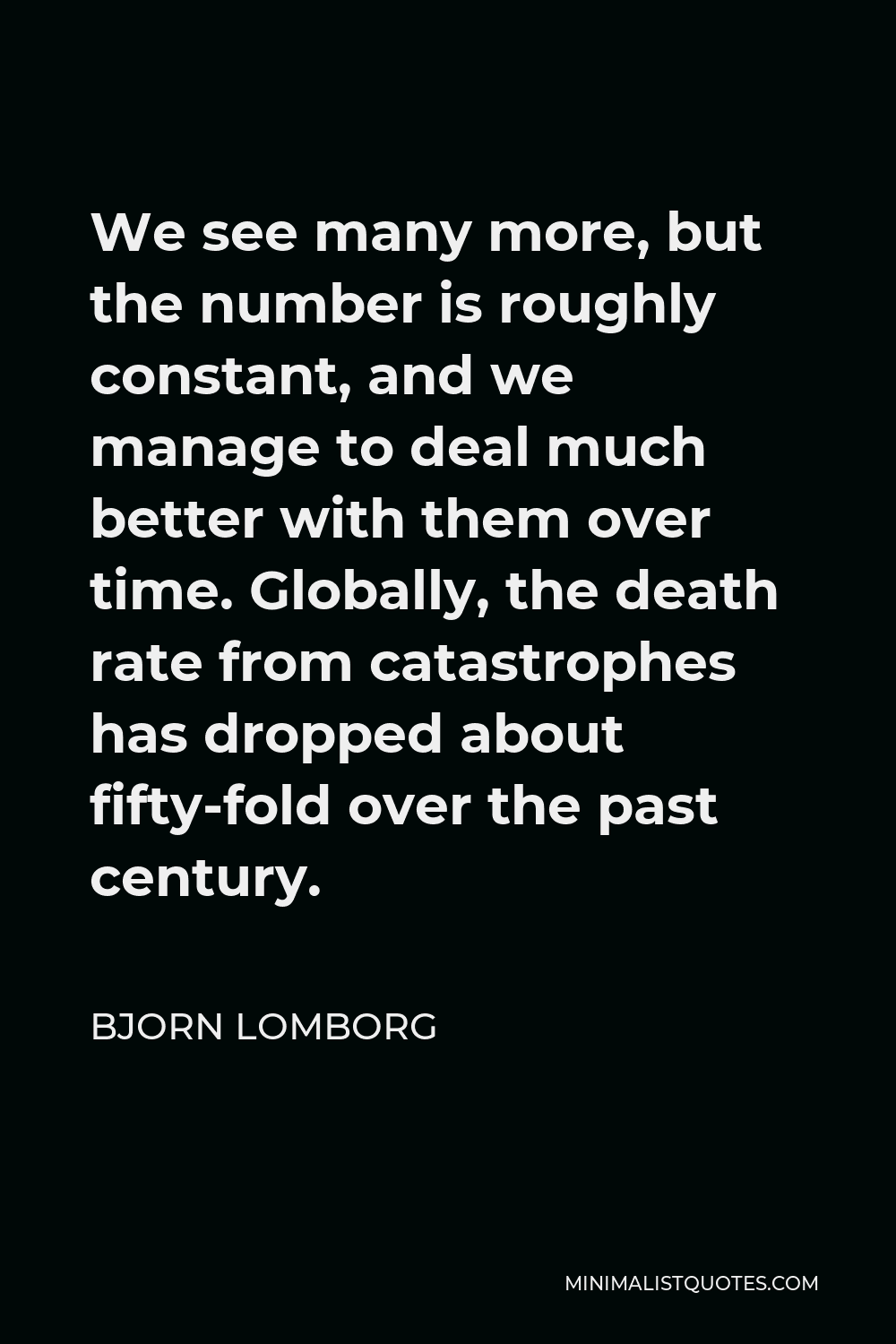
We see many more, but the number is roughly constant, and we manage to deal much better with them over time. Globally, the death rate from catastrophes has dropped about fifty-fold over the past century.
BJORN LOMBORG -





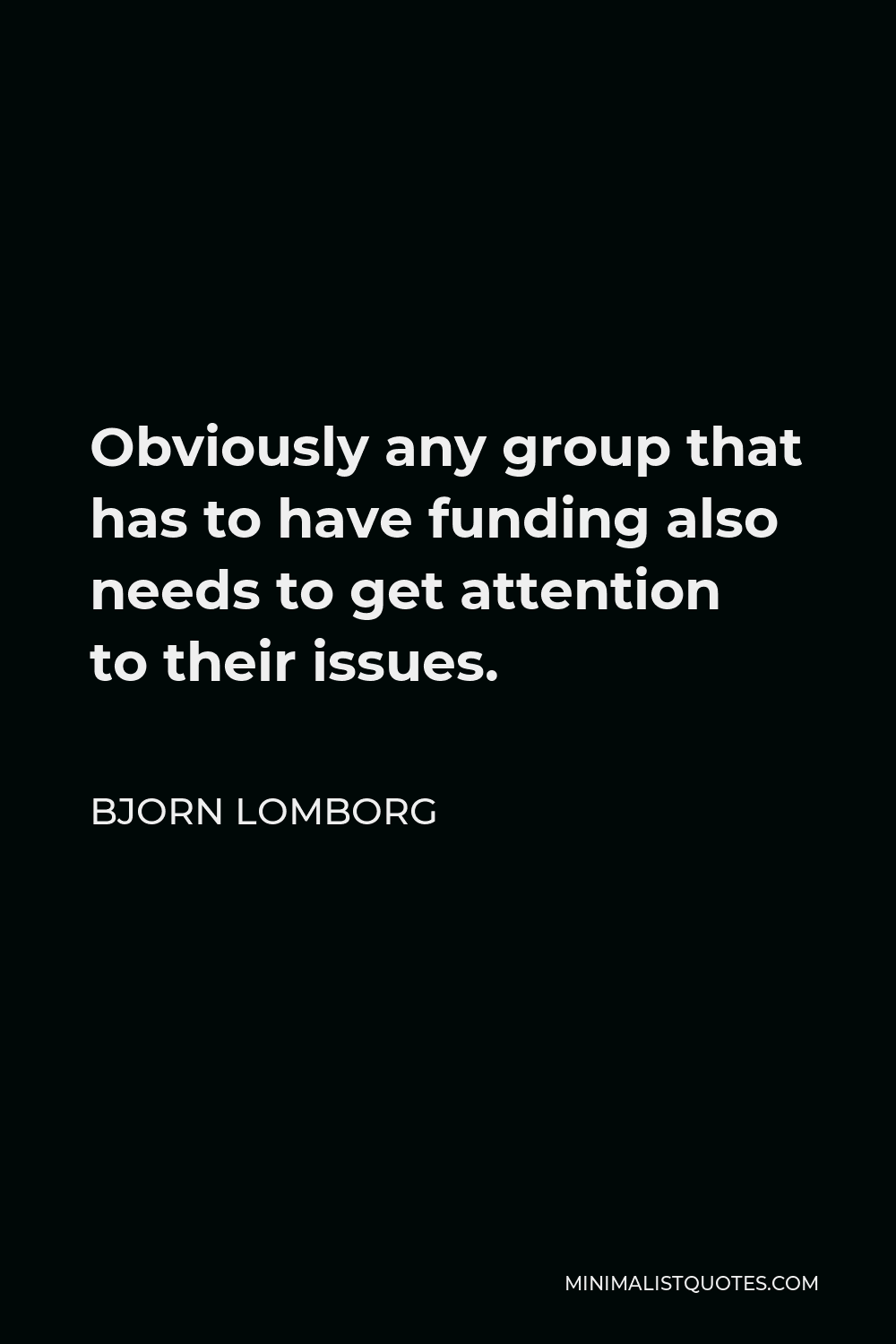
Obviously any group that has to have funding also needs to get attention to their issues.
BJORN LOMBORG -





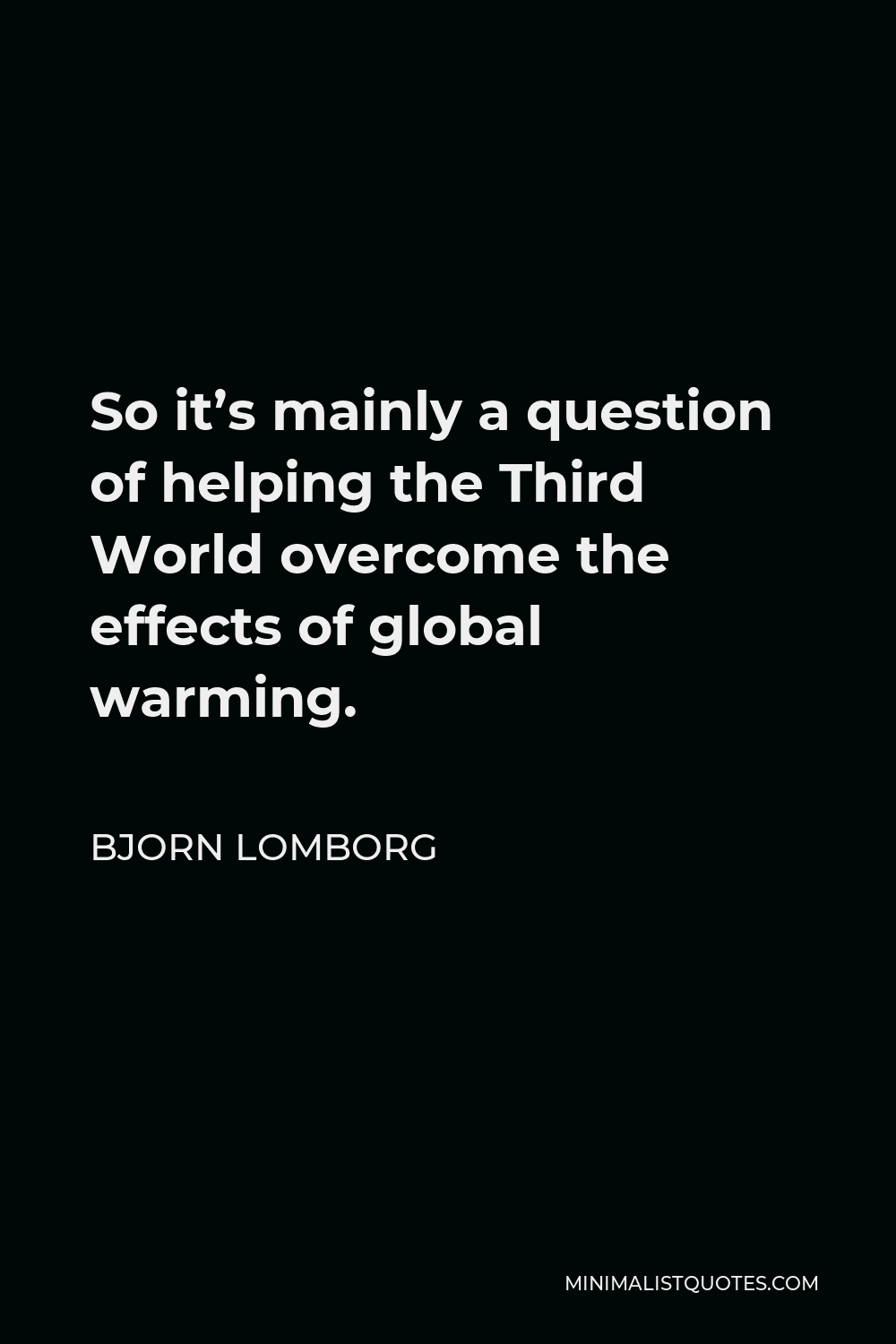
So it’s mainly a question of helping the Third World overcome the effects of global warming.
BJORN LOMBORG -





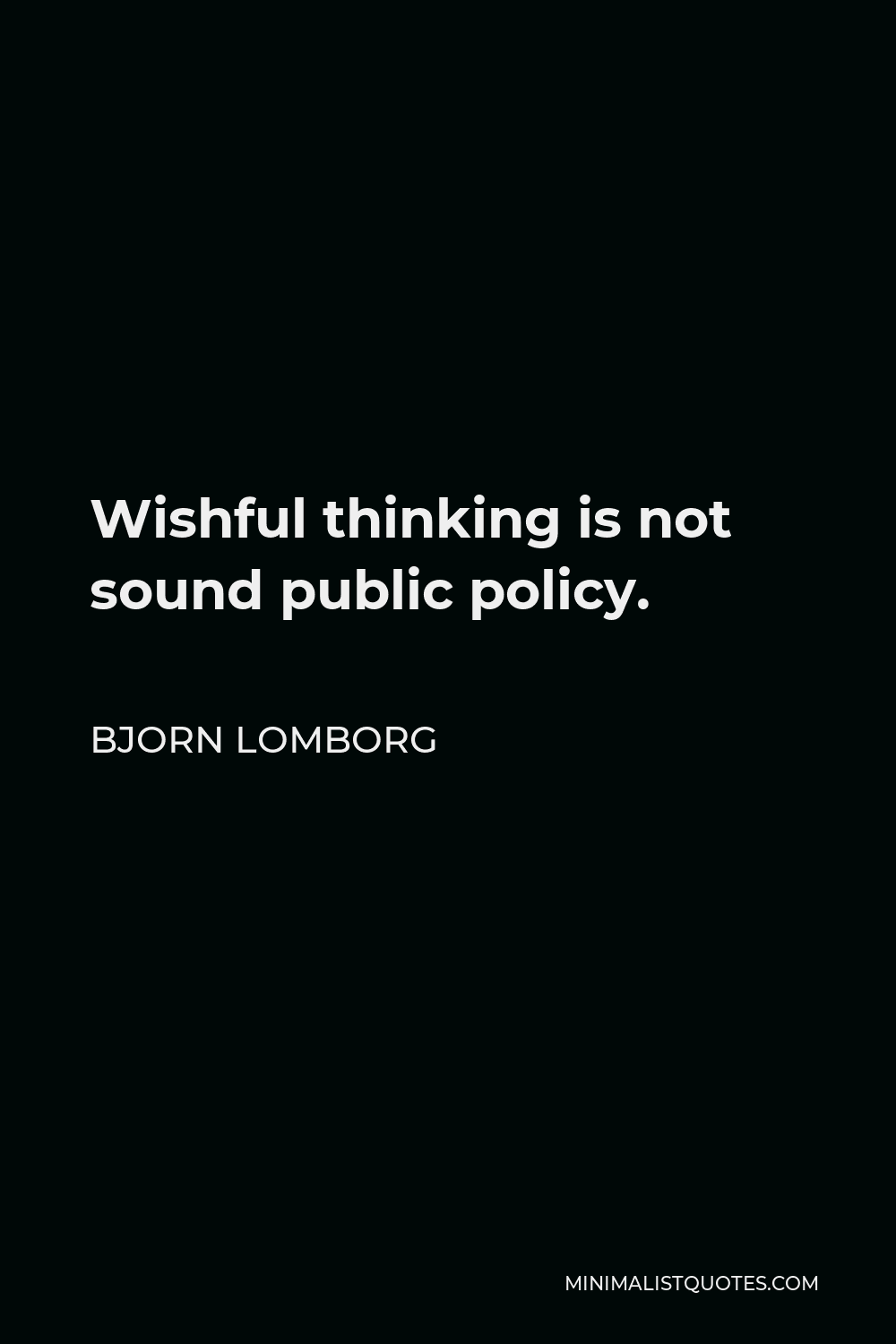
Wishful thinking is not sound public policy.
BJORN LOMBORG
